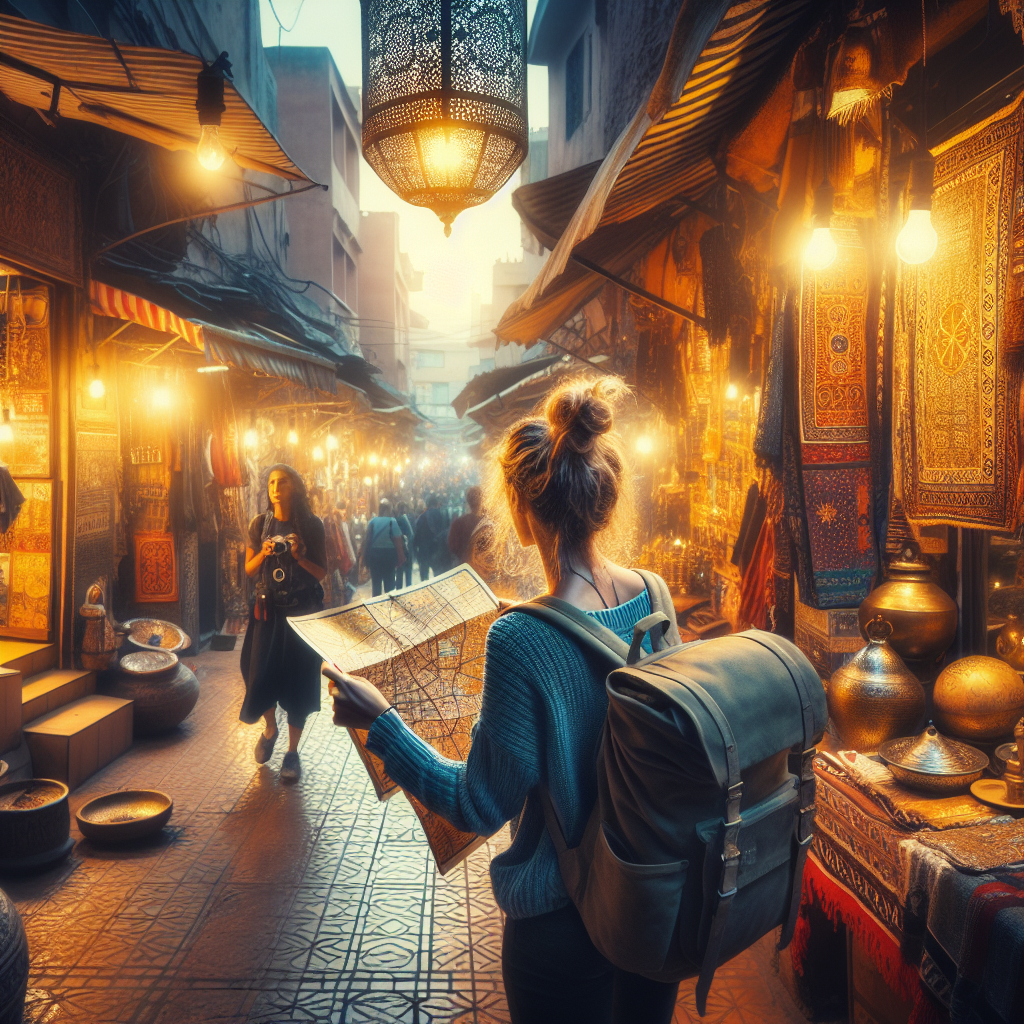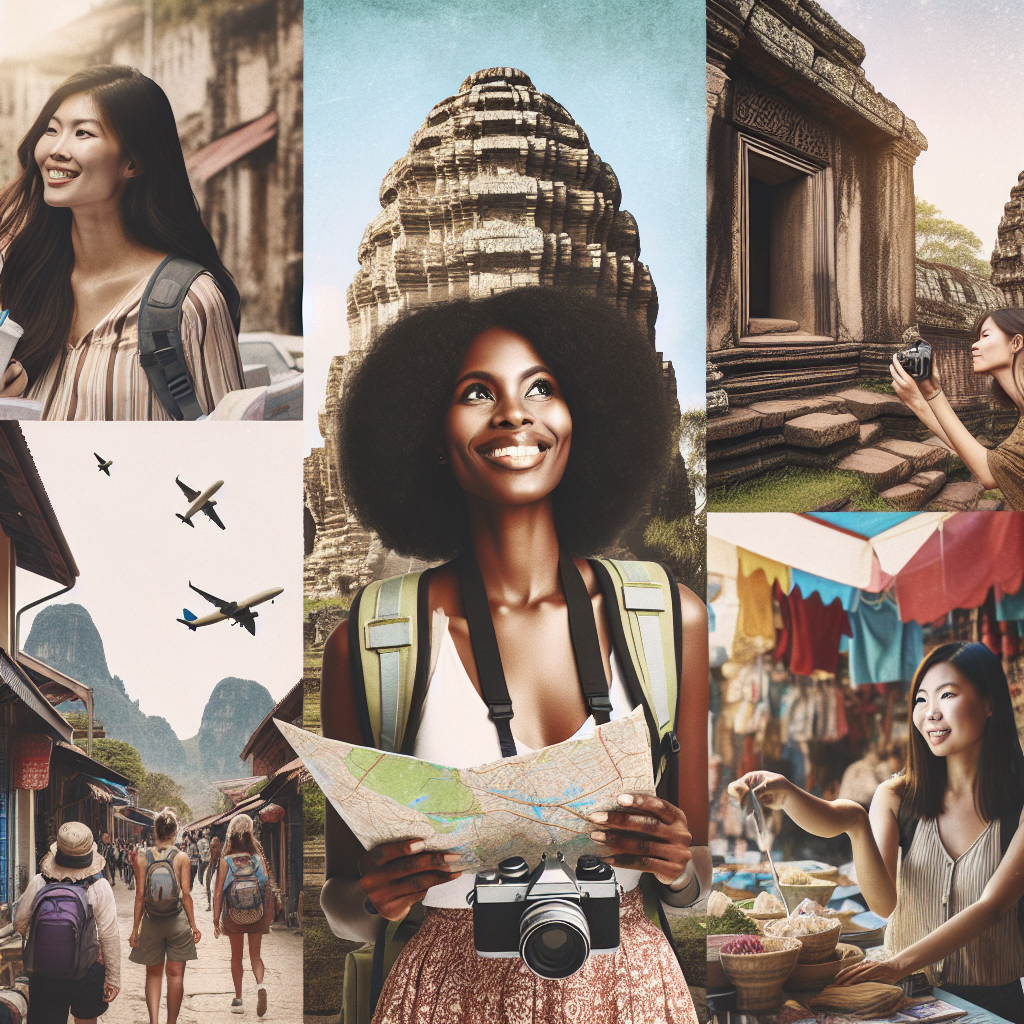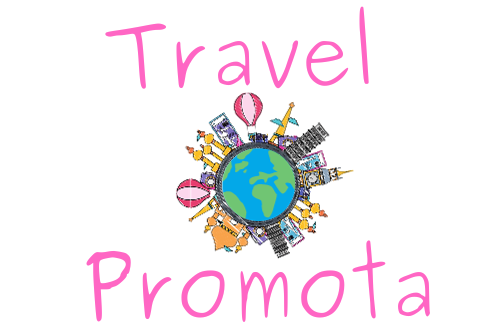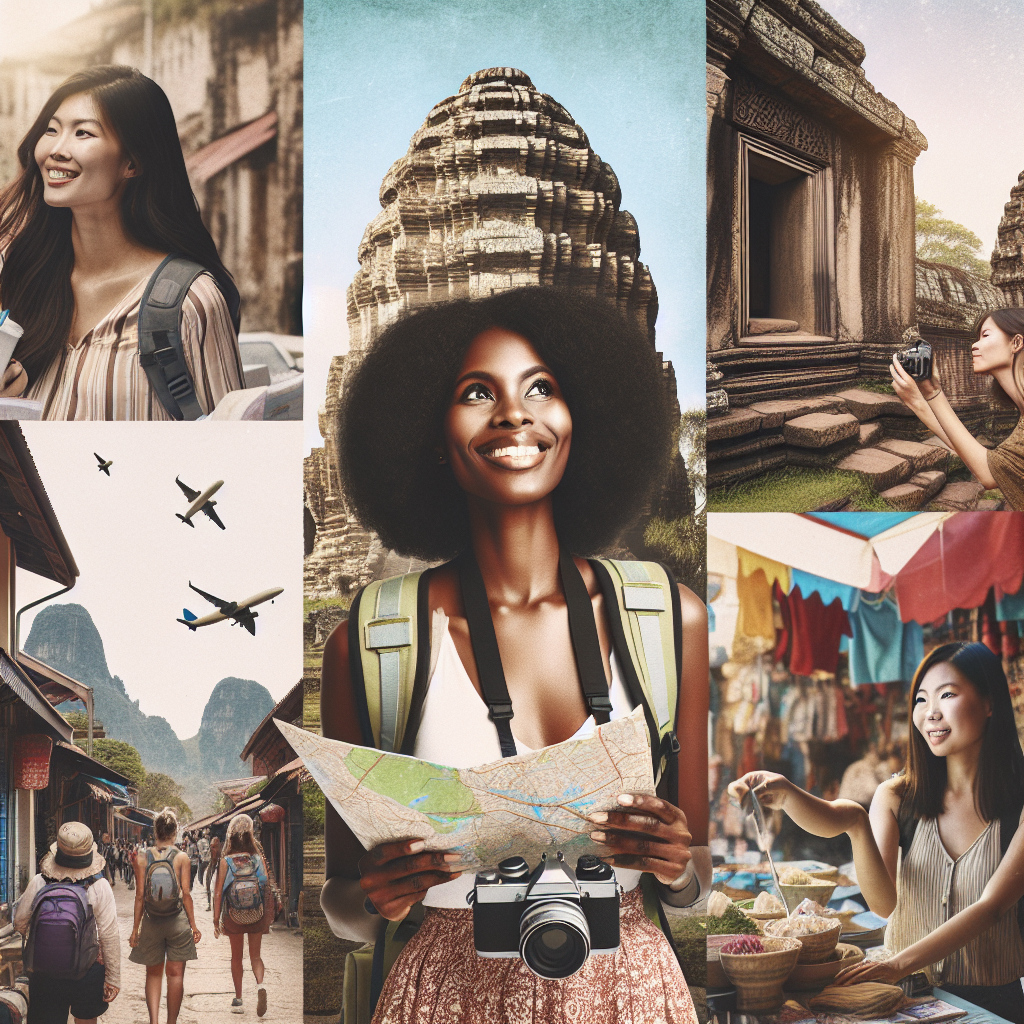Ready to embark on your next adventure? If you’re a solo female traveler, this article is a must-read! We’ve compiled a list of top tips to ensure your safety, comfort, and peace of mind throughout your journey. Whether you’re planning a weekend getaway or a long-term expedition, these practical suggestions will empower you to make the most of your solo travel experience. So pack your bags, grab your passport, and get ready to make unforgettable memories as you conquer the world on your own terms!

Safety Tips
When traveling alone as a female, it’s important to prioritize your safety. Here are some safety tips to keep in mind:
Research your destination
Before embarking on your solo adventure, take the time to research your destination thoroughly. Familiarize yourself with local customs, laws, and any safety concerns specific to the area. It’s important to have a good understanding of the political climate, social issues, and potential risks in order to make informed decisions during your travels.
Share your itinerary
One of the most important safety precautions you can take is to share your itinerary with someone you trust. This could be a friend, family member, or even a travel buddy. Provide them with details of your travel plans, including flight and accommodation information, as well as any activities or excursions you plan to undertake. Regularly check in with them and update them on your whereabouts throughout your trip.
Stay in well-lit and busy areas
When choosing accommodation or exploring unfamiliar areas, opt for well-lit and busy places. These locations are generally safer and offer greater visibility. Avoid isolated or dimly lit areas, especially at night. If you’re unsure about the safety of a certain area, trust your instincts and move to a more secure location.
Trust your instincts
Intuition is a valuable tool when it comes to personal safety. If something doesn’t feel right or gives you a bad vibe, trust your gut instinct. It’s better to be cautious and avoid potential risks than to put yourself in a dangerous situation. Your safety should always be your top priority.
Avoid excessive alcohol consumption
While it’s important to have fun and enjoy your trip, excessive alcohol consumption can impair your judgment and make you more vulnerable. Drink responsibly and be mindful of your alcohol intake, especially when in unfamiliar surroundings. Stay aware of your surroundings, and if you do choose to drink, do so in moderation.
Packing Tips
Packing efficiently and thoughtfully can make your solo travels much smoother. Here are some packing tips to consider:
Pack light and carry essentials
When you’re traveling alone, it’s best to pack light. Having a heavy and bulky suitcase can make navigating through airports, train stations, and busy streets a challenging task. Pack versatile clothing items that you can mix and match, and try to limit yourself to the essentials. Consider the climate of your destination and pack accordingly.
Choose appropriate clothing
When traveling solo, it’s important to consider the cultural norms and dress codes of your destination. Dressing appropriately not only shows respect for the local customs but can also help you blend in and avoid drawing unwanted attention. Research the cultural expectations regarding clothing and pack accordingly. This will also help you feel more comfortable and confident while exploring.
Consider carrying a personal safety device
In some situations, having a personal safety device can provide an added layer of security and peace of mind. There are many options available, ranging from personal alarms to self-defense tools. Research the laws and regulations regarding these devices in your destination country and choose the one that suits you best.
Organize and secure your belongings
Keeping your belongings organized and secure is crucial when traveling alone. Invest in a quality travel bag or backpack that has security features such as slash-proof material or lockable compartments. Use packing cubes or organizers to keep your belongings separate and easily accessible. Consider using luggage locks to secure your bags when in transit or staying in accommodation.
Pack a first aid kit
Having a basic first aid kit with essential items is always a good idea, especially when traveling solo. Include items such as band-aids, antiseptic wipes, pain relievers, and any personal medications you may need. Familiarize yourself with basic first aid techniques, and consider taking a first aid course before your trip.
Health and Hygiene Tips
Taking care of your health and practicing good hygiene is essential during solo travel. Here are some tips to keep in mind:
Stay hydrated
It’s easy to forget to drink enough water while exploring new places, but staying hydrated is crucial for your overall well-being. Carry a refillable water bottle with you and ensure that you have access to clean and safe drinking water. If you’re unsure about the water quality, opt for bottled water or use a water purification system.
Take appropriate medications
If you have any pre-existing medical conditions or require regular medication, make sure you have an ample supply for the duration of your trip. Carry them in their original packaging, along with the prescription or a doctor’s note. Research the rules and regulations regarding medication in your destination country to avoid any issues at customs.
Practice good hygiene
Maintaining good hygiene is important for your health and well-being. Wash your hands regularly with soap and water or use hand sanitizer when necessary, especially before eating or touching your face. Carry wet wipes or hand sanitizing wipes for times when water and soap are not readily available. Remember to pack personal hygiene products such as toiletries and menstrual supplies.
Be cautious of food and water quality
When traveling to unfamiliar destinations, pay attention to the quality and safety of the food and water you consume. Avoid street food or establishments that do not appear clean or well-maintained. Stick to bottled or boiled water, and be cautious when consuming fresh fruits and vegetables that may have been washed with untreated water. It’s always better to be safe than sorry, so trust your instincts and err on the side of caution.
Protect yourself from insects and sun exposure
Insects and sun exposure can pose health risks to travelers, so taking precautions is essential. Pack insect repellent and use it as directed to protect yourself from mosquito-borne diseases. Wear appropriate clothing, such as long sleeves and pants, to minimize exposed skin. Additionally, don’t forget to apply sunscreen with a high SPF to protect yourself from the harmful effects of the sun.
Accommodation Tips
Choosing the right accommodations can significantly impact your solo travel experience. Here are some tips to help you find safe and suitable places to stay:
Research safe accommodations
Before booking your accommodation, do thorough research to ensure it is located in a safe neighborhood. Look for information on local safety concerns, such as high crime rates or areas to avoid. Check travel forums and websites for recommendations from other solo travelers or seek advice from local tourism offices.
Check online reviews and ratings
Reading reviews from previous guests can provide valuable insights into the safety and quality of a particular accommodation. Look for reviews from solo female travelers to get an idea of their experiences and any safety concerns they may have encountered. Websites such as TripAdvisor, Booking.com, and Airbnb typically have reviews and ratings that can help you make an informed decision.
Choose well-located and reputable hotels/hostels
Opting for accommodations that are well-located and reputable can provide an added sense of security. Look for accommodations that are centrally located and easily accessible to public transportation. High-rated hotels or well-reviewed hostels are often a safer choice, as they are more likely to have proper security measures in place.
Consider staying in female-only accommodation
For solo female travelers, staying in female-only accommodation can offer an additional level of comfort and security. Women-only hostels, hotels, or Airbnb options are specifically designed to cater to the needs of female travelers. These accommodations often have female-only dormitories or private rooms and may provide additional safety features such as female staff members or secure entry systems.
Secure your room and valuables
Regardless of the type of accommodation you choose, it’s essential to take precautions to secure your room and valuables. Use the safety deposit box or lockable storage provided by the accommodation to store your passport, money, and important documents. Always lock your room when you leave, and consider using additional security measures such as a door wedge or portable door lock.

Transportation Tips
Navigating transportation in a new place can be both exciting and challenging. Here are some tips to help you travel safely:
Use trusted and licensed transportation services
When it comes to transportation, it’s important to prioritize safety. Opt for trusted and licensed transportation services, such as official taxi companies or reputable ride-sharing services. Research your destination’s public transportation system and familiarize yourself with how it operates to avoid potential scams or unsafe practices.
Avoid traveling alone at night
As a solo traveler, it’s generally best to avoid traveling alone at night, especially in unfamiliar or high-risk areas. Plan your activities and transportation in a way that allows you to reach your destination before it gets dark. If you must travel at night, opt for well-lit and busy routes, and consider using reputable transportation services or arranging a pickup with your accommodation.
Keep essential documents and cash in separate places
To minimize the impact of potential theft or loss, it’s important to keep your essential documents and cash in separate places. Carry photocopies of your passport, identification, and other important documents, and store them separately from the originals. Consider using a hidden money belt or a secure travel wallet to keep your cash and cards safe.
Share your transportation details with someone
Before embarking on any form of transportation, make sure to share the details with someone you trust. This could include the type of transportation you’re taking, the departure and arrival times, and any relevant contact information. Regularly check in with your designated contact person to update them on your transportation status.
Be cautious of strangers offering rides
While it’s natural to be open to new experiences and interactions while traveling, exercise caution when accepting rides from strangers. Avoid getting into unmarked vehicles or accepting rides from individuals who approach you out of the blue. Stick to authorized transport options and use reliable transportation apps or services whenever possible.
Communication Tips
Effective communication is key to navigating new environments and ensuring your safety. Here are some communication tips for solo female travelers:
Learn basic local phrases and emergency numbers
Learning a few basic local phrases can go a long way in navigating unfamiliar places. Not only does it help you break the ice and connect with locals, but it also shows respect for the local culture. Additionally, familiarize yourself with emergency numbers in the country you’re visiting. Knowing how to call for help in case of an emergency is crucial.
Stay connected with reliable communication tools
Having a reliable means of communication is essential when traveling alone. Make sure your mobile phone is unlocked and capable of connecting to local networks. Consider purchasing a local SIM card to have access to affordable and reliable mobile data and calls. Alternatively, download communication apps such as WhatsApp or Skype that work over Wi-Fi.
Notify your embassy or consulate of your travel plans
Before traveling solo, it’s a good idea to register your travel plans with your embassy or consulate. This allows them to reach out to you in case of emergencies or provide important updates about the local situation. Registration can usually be done online and is a simple precaution that provides an extra layer of safety.
Inform your family and friends about your whereabouts
Keeping your loved ones informed about your whereabouts is crucial, especially when traveling alone. Regularly update your family and friends on your location and any changes to your travel plans. Consider setting up a regular check-in schedule or using location-sharing apps so that someone always knows where you are.
Use discreet methods to avoid drawing unwanted attention
Unfortunately, being a solo female traveler may attract unwanted attention from others. To minimize the risk, try to blend in with the local culture and avoid drawing unnecessary attention to yourself. Dress modestly and be mindful of your behavior in public. Consider using discreet methods to carry your belongings and avoid displaying flashy or expensive items.
Cultural Awareness Tips
Respecting and understanding the local culture is essential when traveling alone. Here are some tips to help you navigate cultural differences:
Respect local customs and dress codes
Each culture has its own set of customs and traditions that should be respected. Familiarize yourself with the local customs, including appropriate dress codes, gestures, and behaviors. Dress modestly when visiting religious sites or conservative areas and always be aware of cultural sensitivities.
Research cultural norms and practices
Different cultures have different norms and practices, and being aware of them can greatly enhance your travel experience. Research local customs, traditions, and social etiquette before arriving at your destination. Understanding the local culture will not only help you avoid unintentionally offensive behavior but will also allow you to connect more authentically with the locals.
Be mindful of gender-based challenges in certain societies
Unfortunately, some societies present gender-based challenges for solo female travelers. Research the gender dynamics of your destination and be prepared for any potential obstacles or limitations you may face. Dressing modestly, avoiding isolated areas, and seeking advice from fellow female travelers can help you navigate such situations.
Learn about common scams and be vigilant
Scams targeting tourists are prevalent in many destinations. Take the time to educate yourself about common scams and tactics used by scammers. Be vigilant and cautious when interacting with strangers, especially in busy tourist areas or crowded markets. Trust your instincts, and if something feels too good to be true, it probably is.
Engage with locals respectfully and responsibly
Engaging with locals can be a rewarding part of solo travel, but it’s important to approach these interactions respectfully and responsibly. Be mindful of cultural differences and avoid imposing your own beliefs or values on others. Seek consent before taking photos or engaging in conversations, and always treat locals with respect and kindness.
Solo Travel Emotional Support
While solo travel can be an incredible experience, it can also be emotionally challenging at times. Here are some tips to help you navigate the emotional aspects of solo travel:
Join travel communities and forums
Joining travel communities and forums allows you to connect with fellow solo travelers and gain valuable insights and support. Online platforms such as TripAdvisor, Lonely Planet, and travel-specific Facebook groups are great places to ask questions, share experiences, and seek advice from experienced travelers.
Connect with fellow solo female travelers
Connecting with other solo female travelers can provide a unique source of understanding and support. Online platforms, such as female travel groups on social media or women-focused travel blogs, can help you find like-minded individuals who have been through similar experiences. Share stories, exchange advice, and even consider meeting up with other solo travelers during your trip.
Share experiences and seek advice
Don’t hesitate to share your experiences and seek advice from fellow travelers. Whether it’s about safety concerns, emotional challenges, or recommendations for things to do and see, other travelers can provide valuable insights and support. Engaging in conversations and sharing your own experiences can also help build a sense of community and create lasting connections.
Develop your self-confidence and intuition
Solo travel is an opportunity for personal growth and self-discovery. Embrace the challenges and push yourself out of your comfort zone. As you gain experience, your self-confidence and intuition will grow stronger. Trust yourself and your abilities, and believe in your capacity to handle whatever comes your way.
Embrace travel as a personal growth opportunity
Solo travel is not just about visiting new places; it’s also a journey of self-discovery and personal growth. Embrace the opportunity to learn about different cultures, challenge your limitations, and gain a deeper understanding of yourself. Approach each experience with an open mind and a willingness to learn, and you’ll return home with a newfound sense of empowerment and perspective.
Emergency Preparedness
While it’s always best to hope for the best, it’s also important to be prepared for the unexpected. Here are some tips for emergency preparedness:
Have emergency contact details readily accessible
Ensure you have emergency contact details readily accessible both in digital and physical form. Save important numbers in your phone, carry a written list of emergency contacts, and keep a copy in both your daypack and main luggage. Include contacts for local emergency services, your embassy or consulate, and the closest hospital or medical facility.
Know the location of nearest medical facilities
Research the location of the nearest medical facilities at your destination. This includes hospitals, clinics, and pharmacies. Familiarize yourself with their operating hours and services to ensure you have easy access to medical assistance when needed. It’s always better to know where to go in case of an emergency.
Understand local emergency procedures
Each destination may have different emergency procedures and protocols. Take the time to familiarize yourself with these procedures, especially if you’re traveling to remote or high-risk areas. Know how to contact local emergency services and understand how they operate. This knowledge can be invaluable in times of crisis.
Carry a list of important phone numbers
In addition to emergency contacts, it’s helpful to carry a list of other important phone numbers. This could include the contact information for your accommodation, local transportation services, and any tour operators or guides you’re using. Having these numbers readily available can save you time and provide peace of mind.
Have a backup plan in case of unforeseen circumstances
While it’s impossible to predict every possible scenario, having a backup plan in case of unforeseen circumstances is essential. Consider what you would do in the event of flight cancellations, lost or stolen belongings, or sudden changes in your travel plans. Familiarize yourself with travel insurance policies and make sure you have appropriate coverage to protect yourself in emergencies.
Self-defense and Personal Safety
Taking steps to ensure your personal safety is essential during solo travel. Here are some tips for self-defense and personal safety:
Take a self-defense course before traveling
Taking a self-defense course before your trip can equip you with valuable skills and techniques to protect yourself in difficult situations. Look for classes in your local area or consider online self-defense programs specifically tailored for solo female travelers. Learning these skills can boost your confidence and provide you with valuable tools in case of emergency.
Carry a whistle or personal alarm
A whistle or personal alarm can be a simple yet effective tool to attract attention and deter potential attackers. These small devices are portable and easy to use, and can serve as a non-physical means of self-defense. Keep them easily accessible, such as on your keychain or in a pocket, so you can quickly reach for them if needed.
Be aware of your surroundings at all times
Remaining aware of your surroundings is crucial for personal safety. Pay attention to the people around you, observe any suspicious behavior, and trust your instincts. Avoid distractions such as excessive phone use or wearing headphones that may prevent you from hearing important sounds or noticing potential threats.
Avoid displaying signs of vulnerability
While it’s important to embrace the local culture and be open to new experiences, it’s also crucial to be mindful of displaying signs of vulnerability. Avoid appearing lost or confused, and project an air of confidence when navigating unfamiliar areas. Walk with purpose and maintain good posture, as these qualities can decrease the likelihood of becoming a target.
Respond assertively to harassment or unwanted attention
Unfortunately, unwanted attention or harassment can occur while traveling alone. If you find yourself in an uncomfortable or threatening situation, respond assertively. Clearly communicate your boundaries and firmly assert your desire to be left alone. Trust your instincts and remove yourself from the situation as quickly as possible. If necessary, seek help from nearby authorities or establishments.
As a solo female traveler, it’s crucial to prioritize your safety, be proactive in taking precautions, and remain vigilant throughout your journey. By following these comprehensive tips, you can navigate your solo adventures with confidence, enjoy meaningful experiences, and make lifelong memories. Happy travels!

